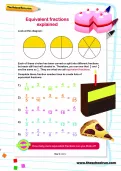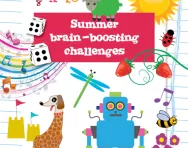Important update from TheSchoolRun
For the past 13 years, TheSchoolRun has been run by a small team of mums working from home, dedicated to providing quality educational resources to primary school parents. Unfortunately, rising supplier costs and falling revenue have made it impossible for us to continue operating, and we’ve had to make the difficult decision to close. The good news: We’ve arranged for another educational provider to take over many of our resources. These will be hosted on a new portal, where the content will be updated and expanded to support your child’s learning.
What this means for subscribers:
- Your subscription is still active, and for now, you can keep using the website as normal — just log in with your usual details to access all our articles and resources*.
- In a few months, all resources will move to the new portal. You’ll continue to have access there until your subscription ends. We’ll send you full details nearer the time.
- As a thank you for your support, we’ll also be sending you 16 primary school eBooks (worth £108.84) to download and keep.
A few changes to be aware of:
- The Learning Journey weekly email has ended, but your child’s plan will still be updated on your dashboard each Monday. Just log in to see the recommended worksheets.
- The 11+ weekly emails have now ended. We sent you all the remaining emails in the series at the end of March — please check your inbox (and spam folder) if you haven’t seen them. You can also follow the full programme here: 11+ Learning Journey.
If you have any questions, please contact us at [email protected]. Thank you for being part of our journey it’s been a privilege to support your family’s learning.
*If you need to reset your password, it will still work as usual. Please check your spam folder if the reset email doesn’t appear in your inbox.
8 things you must do to lay the foundations of a great school year

‘First and foremost I believe children need plenty of rest, which means lots of early nights over the holidays. Equally important is reassurance – a child who is secure in their knowledge and confident in their abilities will do well in the year to come. To help foster confidence, spend time going over skills they learned the previous year so that, by the time they go back, they’re in no doubt about their abilities.’
Christie Ravenhill, Year 1 teacher


Start a unique learning programme!
- Weekly programme for each school year
- Worksheets sent direct to your inbox
- Keeps your child's learning on track
‘Don’t encourage that "back to school" feeling – it’s important to spend the summer speaking positively about learning and education, so your child looks forward to the year ahead. Planning a variety of fun activities, from trips to the beach and the zoo to visits to grandparents, gives children exciting things to talk and write about when they’re in class again, so also helps them look forward.’
Amy Chase, Year 6 teacher
‘Try and use the summer to encourage younger children to be as independent as possible. Praise and reward them for mastering new skills like trying to do up their own coat, mastering poppers and zips or learning to put on their own shoes. Your child’s teacher will thank you come September!’
Kate Kruger, Reception teacher
‘Don’t think of the summer as "time off" learning; instead encourage it but as an enjoyment. So get your kids spotting numbers and letters around them all, or make science into a game. Counting money out for you in shops, collecting and sorting seashells, cooking following a recipe… all great fun but skills boosters, too.’
Lisa Marshall, deputy head
‘If you do nothing else this summer, read, read and read some more with your children. It doesn’t matter what; books, comics, newspaper articles, websites, packaging or even subtitles all help. Good readers become good writers, and confident readers are always the most proficient in class.’
Kate Couldwell, Year 1 teacher
‘Use the time at home with your child as a chance to really talk to them. Ask questions that will promote their thinking and you’ll help them become more confident speakers (and listeners), and expand their vocabulary skills for when the school year begins again. The dinner table is the perfect place to engage your children in conversation – it helps them to see that their thoughts, feelings and opinions matter to you.’
Lauren Trumble, Year 5/6 teacher
‘Children need to develop a love of learning to become self-motivated to succeed. Parents can foster this from a very early age by encouraging them to ask questions, be inquisitive, explore the world around them, to take risks and to challenge themselves.’
Gerry Simonds, former head teacher and Ofsted inspector
‘We need parents to provide us with happy, confident children at the start of the school year. That means children who have had a good night’s sleep and a good breakfast. If your child isn’t a fan of either, summer is the perfect time to get them into good term-time habits. It sounds so minor, but a tired or hungry child won’t learn as well as one who is well rested and has a full tummy!’
Karen Boswell, KS2 teacher








